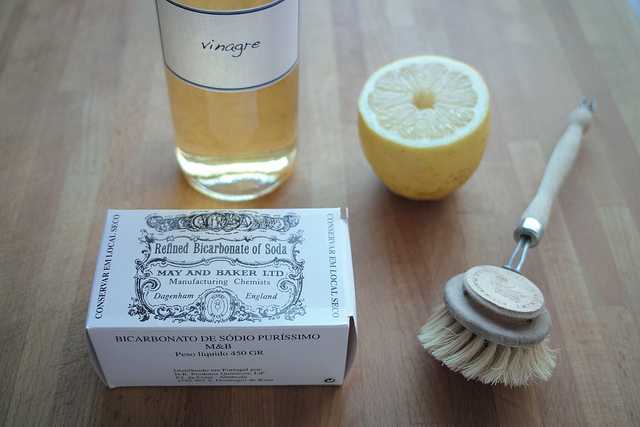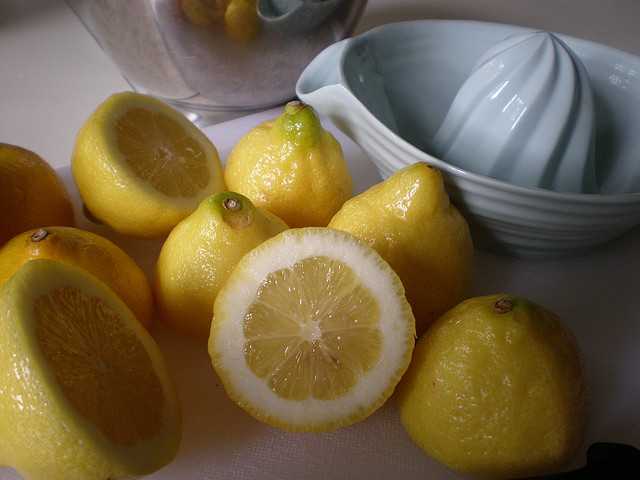
Photo by otchipotchi
Although the main problem of hard water isn’t just water stains, spots, hazy and dirty look, but it can literally ruin the dishwasher and it doesn’t look good – imagine holiday table with all those fancy and shiny details and dirty looking glasses! Luckily, there are few recipes for getting rid of hard water stains, and you will need to find out which of them work best for you ( a lot depends on the quality of water ). First things first!
We have divided those solutions into two groups: natural and commercial, and we suggest you recourse to commercial solutions only if natural remedies fail since they are non–toxic and are biodegradable.
1. Vinegar
Vinegar can be used in two ways when it comes to the dishwasher. First, use it as a cheap and very effective solution for cleaning dishes, which will also make the glasses shiny again. Secondly, you can use it to clean the dishwasher itself: once a year or more often, pour 225 ml of vinegar into an empty dishwasher, then turn the machine on, and use a short program ( or the main program ) at a moderate temperature. This way you will remove plaque and fat deposits, and thus extend the life of your machine. If this doesn’t work for you, try with lemon juice.
2. Lemon Juice
With half a lemon you will hassle – free remove stains from tomato and other acidic foods from the dishes.
For better performance and brighter dishes add a tablespoon of lemon juice in a dishwasher detergent. Or you can use it this way: after the dishes are washed in the dishwasher, and the stains are still there, moisten the cloth with lemon juice and rub the dishes till you are satisfied how it looks, and rinse the dishes to remove excess lemon juice. It is important to hand – dry the dishes with lint – free dish towel, to prevent new water stains to show up.
Same with vinegar – in some occasions lemon juice might not work for you – it might be too weak or not acidic enough to clean the hard water stains.
3. Citric Acid
Mineral deposits caused by hard water remain on the edges of your dishwasher which affects the dishes, too. If none of the above works for you try this trick with citric acid. Pour the citric acid in detergent dispenser and put the dishes with stains and mineral residues in the dishwasher ( remember, only glass dishes – not metal or stainless steel dishes ) and set the wash cycle at 600 C ( 1400 F ) or more.
4. Cleaning The Dishwasher With Non – Toxic Detergent
Your dishwasher needs periodic cleaning – the best would be once a month. Here is what you need to do.
Empty the dishwasher. Scrub the joints on and around the doors with a toothbrush dipped in white vinegar. For tougher stains, try with a baking soda paste. At the bottom of the empty dishwasher pour a cup of white vinegar, close the dishwasher and run the wash cycle at the highest temperature. If you want a scented dishwasher, pour a bit of citric acid in detergent compartment and run the wash cycle with the empty dishwasher.
5. Baking Soda Paste
Baking Soda Paste Recipe: Mix 5 tablespoons of baking soda with 5 tablespoons of lukewarm water.
Recipe for a daily kitchen cleanser: Mix 300 ml of white vinegar with 200 ml of water and add about 40 drops of eucalyptus oil, which will suppress strong smell of vinegar and disinfect kitchen surfaces, in a spray bottle.
